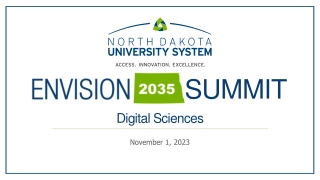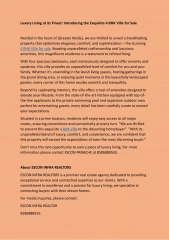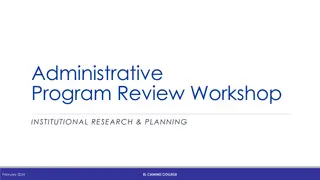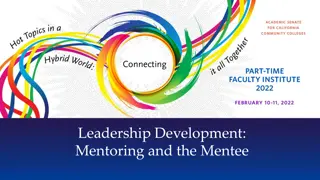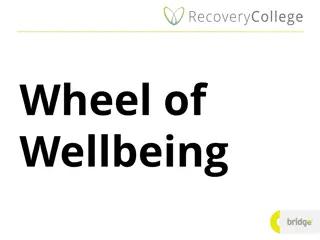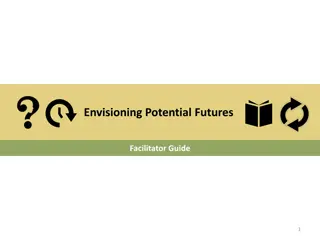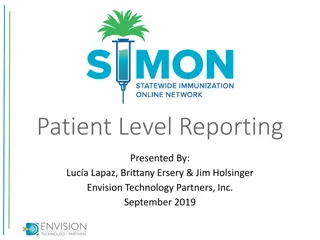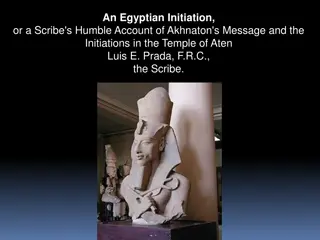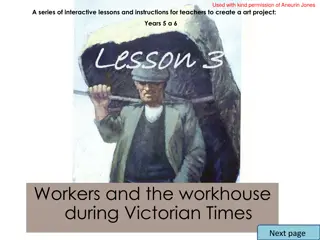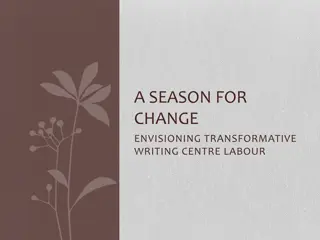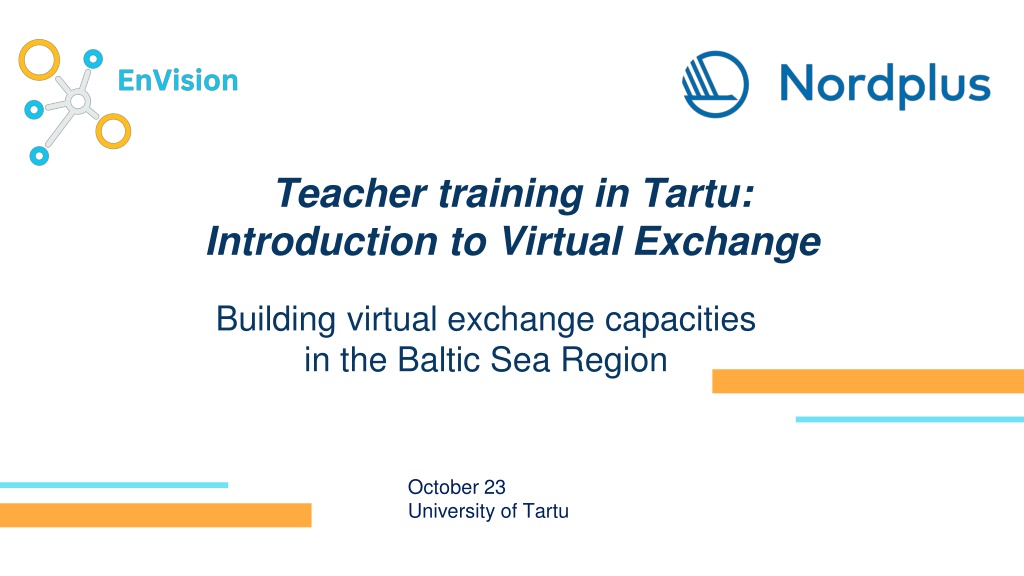
Innovative Virtual Exchange Training in the Baltic Sea Region
Explore the EnVision network's initiative to enhance virtual exchange capacities in the Nordic-Baltic region through collaborative efforts among universities. The network aims to develop guidelines, tools, and training seminars to integrate digital competencies into course curricula for graduate employability. Join the informative seminar in Tartu to discover best practices, design virtual exchange scenarios, and foster international and intercultural opportunities for students in social sciences. Don't miss this chance to be part of a hub of excellence in innovative digital teaching methods.
Download Presentation

Please find below an Image/Link to download the presentation.
The content on the website is provided AS IS for your information and personal use only. It may not be sold, licensed, or shared on other websites without obtaining consent from the author. Download presentation by click this link. If you encounter any issues during the download, it is possible that the publisher has removed the file from their server.
E N D
Presentation Transcript
Teacher training in Tartu: Introduction to Virtual Exchange Building virtual exchange capacities in the Baltic Sea Region October 23 University of Tartu
EnVision network The EnVision network brings together four innovation-oriented universities in the Nordic- Baltic region (University of Tartu, Vilnius University, Uppsala University, University of Helsinki) with a range of experiences in designing and running Virtual Exchanges (VEs) in order to - Facilitate the sharing of knowledge and best-practices and - co-design VEs course scenarios and produce shared guidelines for implementing VEs. The network will strengthen cooperation channels in the region, creating a hub of excellence in innovative digital teaching methods and VEs.
EnVision network The network addresses the need of social sciences departments to 1) expand the scope of international and intercultural opportunities offered to students to create competitive, inclusive, and diverse study environments and 2) integrate digital competencies and transferrable skills (intercultural communication, critical thinking, problem solving, teamwork) into course curricula to enhance graduate employability.
EnVision network The network will produce the following tangible outcomes, which can be used after the conclusion of the project: - VE training seminars, including slides, training syllabus, practical activities, case studies of best practices - VE Toolkit with practical guidelines on VE design, implementation, and facilitation, sample VE course design scenarios, and a glossary of VE terminology in partners national languages to be circulated among teaching staff - Dissemination of the project activities and results on social media to raise awareness of the innovative concept of VEs among teaching staff and students.
Seminar in Tartu Introduction to virtual exchanges in the social sciences: tools, methods, processes, and challenges (host Tartu) - 2-day training (plus additional day for travel) for at least 12 participants (3 lecturers per partner institution). Lectures on theoretical aspects and practical exercises will introduce teaching staff to VE terminology and didactics, tips, and case studies of effective implementation. Discussion sessions will allow participants to get to know one another and the courses they teach. Working groups will be created, consisting of pairs of teaching staff who will design VE scenarios for their courses. - -
Between seminars mobility - In the 4 5-month interval between Seminars 1 and 2, lecturers will work with their fellow colleague on VE course design. The time can be used for additional teacher and student mobility between the institutions to further develop the courses and strengthen institutional cooperation. Tartu, in collaboration with the Uppsala and Helsinki project managers, will hold an online clinic to check on the progress of groups and provide additional didactic assistance. Prior to Seminar 2, the groups will fill in at least 75% of the template. - - -
Seminar in Vilnius Evaluating virtual exchange possibilities and integration into social science curricula at Nordic-Baltic universities (host Vilnius) - 2-day training (plus additional day for travel) for at least 12 participants (3 lecturers per partner institution). During the seminar each working group will present their VE course scenarios, get feedback from the partners, and discuss challenges and opportunities of integrating VEs into existing courses. Students from Vilnius will be invited to provide additional feedback on the course scenarios from a learners perspective. After the event, lecturers will finalize their VE scenarios and submit the templates for final review by the consortium members for inclusion in the toolkit. - - -
Agenda Venue: Jakobi 5, room A207 9:30 - 10:00 Welcome coffee and snacks. Registration. 10:00 - 10:10 Welcome words by organizers. Introduction to EnVision consortium (Anna Beitane, University of Tartu) 10:10 - 12:30 What is Virtual Exchange, and how does it differ from Virtual Mobility? Practical examples of projects and initiatives in the field of Social Sciences (Dr. Ana Beaven, University of Bologna) 12:30 - 14:00 Lunch
Agenda Venue: Jakobi 5, room A207 14:00 - 16:00 Designing and integrating Virtual Exchange into your course and curriculum: approaches to assessment in Virtual Exchange. What is an effective task in online collaborative learning? (Dr. Ana Beaven, University of Bologna) 16:00 - 16:30 Wrap up 19:00 - 20:30 Welcome reception (University of Tartu Art Museum, likooli 18)
EnVision contact details University of Tartu, Johan Skytte Institute of Political Studies Anna Beitane, anna.beitane@ut.ee Vilnius University, Institute of International Relations and Political Science Anastasiia Tkachuk, anastasiia.tkachuk@tspmi.vu.lt University of Helsinki, Aleksanteri Institute, Minna Oroza, minna.oroza@helsinki.fi Uppsala University, Division for Quality Enhancement, Academic Teaching and Learning Geir Gunnlaugsson, geir.gunnlaugsson@uu.se

